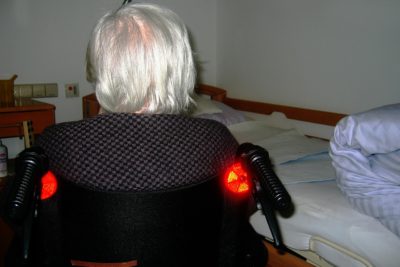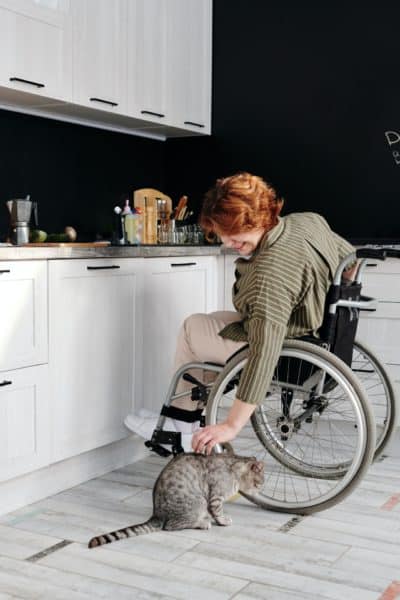Due to various factors, some patients prefer receiving treatment and medical care from their own homes. This is especially the case for patients suffering from chronic or even terminal illnesses and they feel more comfortable when close to their family or loved ones.
Home health care is also common among older adults, especially those suffering from certain illnesses or injuries. When receiving health care at home, such patients require a home health aide, a medical professional who provides them with the necessary support needed for them to feel as comfortable as possible.
A home health aide may support the patient with a wide range of activities, including basic ones such as bathing, wearing clothes, going to the bathroom, eating, cleaning, and taking their medication as required.
As you can see, it’s a highly demanding job that requires one to have a mix of both hard and soft skills while maintaining professionalism and ensuring that the patient feels as comfortable, happy, and satisfied as possible.
Depending on where you’re applying to, a job as a home health aide may require you to have various qualifications, which may include a high school diploma, a college degree, and various certifications for specialized training. Most importantly, customer service skills are highly essential as far as patient handling is concerned.
IMAGE: PIXABAY
Seek HHA Certification Training
If you’re reading this, higher chances are that you at least hold or are pursuing a high school diploma or a college degree. But with the demand for home health aides growing at a steady rate, the job market is expected to be more and more competitive.
Stephanie Corrales and the team at HeyScrubs recommend learning more about this training if you want to be more competitive in the job market as an HHA. The best thing is, there are several training programs out there, some of which you can even get for free.
Customer service is one of the things you’ll learn in your training program, which lasts a minimum of 75 hours. Of these, 40 hours include home care curriculum, 19 hours of health-related tasks, and 16 hours of supervised practical training.
Work On Your Communication Skills
Communication is a soft skill that is required in many industries, especially where excellent customer service is needed. The same case applies in the medical field and HHA is no exception. To ensure that their patient is happy, comfortable, and satisfied at all times, an aide needs to be able to speak and listen to the patient to best understand their needs.
They also need to regularly keep the patient’s family abreast of the progress and overall health status. Great communication skills will also enable a home health aide to keep in constant contact with the doctors and other health professionals regarding the patient’s health.
Apart from listening and speaking, it may also involve written communication, where the aide has to take notes and send emails communicating with doctors and family members. This means that to provide the best customer service, you may want to evaluate your communication skills from the inside out and probably get more training on areas you think are a bit wanting.
Observe Empathy At All Times
Often, many patients under home health care deal with a lot of pain, anxiety, and uncertainty. In this situation, a patient can easily be irritated and even aggressive in some situations. One thing to note is that such patients love feeling appreciated, valued, and cared for.
As a home health aide, this is something you ought to know and understand. Being able to observe empathy can improve your communication and customer service to your patients, so you’ll always know how to calm them down when things get out of hand.
Explain Healthcare Terminology Clearly
As a home health aide, there’s a huge chance you’re conversant with a significant amount of medical terminology, especially terminology revolving around what your patient is suffering from. However, it’s important to remember that patients and their loved ones are rarely familiar with such terminology. Instead of explaining things using a lot of medical jargon, be sure to use a simpler language where possible so you can communicate the message.
Apart from receiving proper training, being empathetic and communicating clearly, and avoiding medical jargon, you may also want to improve your interpersonal skills and learn to build rapport with your patient each time you meet after a few hours.
Also, it will help the patient to know that they have a companion with you, rather than just an aide or helper. It’s also important to learn to always respect your patient’s concerns and communicate them to the doctor or family members where necessary. On top of this, maintain honesty, integrity, reliability, and dependability.
If you are interested in even more lifestyle-related articles and information from us here at Bit Rebels, then we have a lot to choose from.


COMMENTS